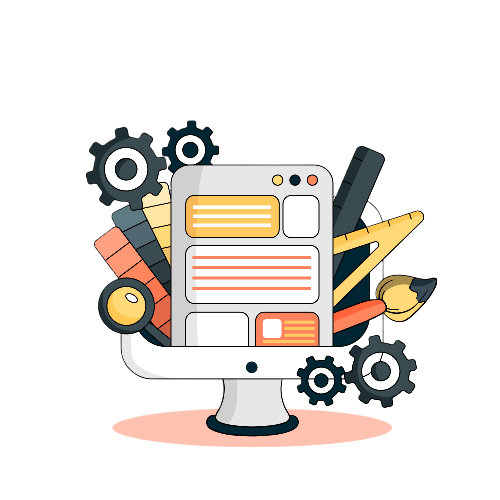Artificial Intelligence (AI) Solutions
At Ammu-Tech, we empower developers to seamlessly scale AI solutions from concept to production. Our platform provides advanced models, powerful customization tools, and fast deployment options – all designed to accelerate innovation and optimize performance in your preferred development environment.
Some of Our Solid Gurantees
we engineer intelligent, adaptable, and secure systems that evolve with your business needs. Every agent we deliver is optimized for performance, observability, and scalability, ensuring you stay ahead in the era of autonomous intelligence.
Adaptive & Scalable Architecture
Performance & Cost Efficiency
Flexibility & Customization
Ongoing Expert Support
Build Smarter Workflows with Ammu-Tech AI Agents
We develop AI agents designed to do more than automate — they reason, adapt, and collaborate. By integrating advanced language models with real-time data and APIs, our agents handle complex decision-making, streamline operations, and evolve through continuous learning.
How We Get Things Done
We begin by identifying the agent’s specific objective and operational context. Around 60–70% of AI project success depends on precise problem framing and relevant data selection.
How we do it: We analyze workflows, user interactions, and data pipelines to define clear input–output mappings and measurable KPIs.
Step 1: Problem Definition & Data Mapping
Next, we select or fine-tune models based on complexity, latency, and accuracy requirements — such as LLMs for reasoning or smaller task-specific models for edge cases.
How we do it: Using frameworks like LangChain and OpenAI APIs, we design modular architectures that balance performance with scalability.
Step 2: Model Selection & Architecture Design
The agent is connected to external tools, APIs, or databases, enabling real-time reasoning and task execution.
How we do it: We integrate with vector databases, retrievers, and API connectors, ensuring the agent can plan, call functions, and make context-aware decisions.
Step 3: Tool Integration & Agent Orchestration
Once deployed, the agent is continuously monitored for accuracy, latency, and cost efficiency. In production, trace-based debugging can reduce failure rates by up to 30%.
How we do it: We implement observability pipelines using tracing tools and feedback loops, refining behavior based on live performance metrics.
Step 4: Evaluation, Tracing & Continuous Optimization
Why Build With Ammu-Tech?
Building reliable AI agents requires more than just good models — it demands engineering precision, observability, and responsible design. Ammu-Tech ensures every solution is technically sound, traceable, and aligned with real-world deployment standards.
Proven Development Frameworks
Transparent Evaluation & Tracing
Scalable Infrastructure
Continuous Human Oversight

Intelligent Automation with Ammu-Tech AI Agents
AI agents are changing how systems think, decide, and act. At Ammu-Tech, we design agents capable of understanding goals, using tools, and collaborating across platforms. Each solution is built to perform autonomously yet align perfectly with your business logic and data ecosystem.
Our development approach focuses on reasoning, orchestration, and adaptability. Agents are not pre-scripted bots — they dynamically interpret context, retrieve knowledge, and make decisions in real time. Using frameworks like LangChain, OpenAI, and custom orchestration layers, we create modular systems that evolve as your workflows grow.
Every Ammu-Tech agent is engineered with traceability and transparency at its core. From detailed event logging to continuous performance evaluation, we ensure each agent operates reliably, efficiently, and within defined ethical boundaries. This combination of logic-driven design and real-time observability makes our AI agents not only powerful — but also trustworthy in production.
Benefit from WordPress Development by Ammu-Tech
Developing AI agents for production involves connecting reasoning models with real operational data and software tools. At Ammu-Tech, teams begin by mapping existing workflows, identifying where reasoning or automation adds measurable value, and then implementing agents that interact through APIs, internal databases, and command interfaces.
During integration, we focus on controlled testing and observability. Each agent’s behavior is logged, traced, and stress-tested under realistic workloads to ensure predictable responses and system safety. This process allows teams to detect drift, optimize token usage, and calibrate reasoning depth before deployment.
- Seamless integration with APIs, data pipelines, and internal tools
- Structured evaluation cycles with performance and latency tracking
- Version-controlled agent behavior for reproducible outcomes
- Scalable deployment through containerized or serverless environments
- Continuous feedback loops for fine-tuning model responses over time
